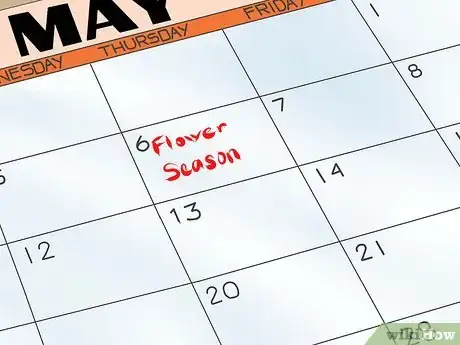This article was co-authored by Clinton M. Sandvick, JD, PhD. Clinton M. Sandvick worked as a civil litigator in California for over 7 years. He received his JD from the University of Wisconsin-Madison in 1998 and his PhD in American History from the University of Oregon in 2013.
There are 11 references cited in this article, which can be found at the bottom of the page.
This article has been viewed 61,036 times.
Whether you are from Oregon or planning a destination wedding, the state offers many options for those who want to get married. You can have a simple wedding, an elopement, or a large outdoor wedding. Regardless of the type of ceremony you choose, all couples planning to marry in Oregon must comply with the state’s marriage license regulations. Once you apply for a license, you have between three and sixty days to become legally married before your license expires.
Steps
Obtaining A Marriage License
-
1Pick a date to get married. Oregon requires that you have a date to get married that is between 3 and 60 days from when you apply from your marriage certificate.
- If you want to get married before 3 days, most counties will waive the waiting period if you can show good cause for the waiver and pay an additional fee.[1]
- Oregon counties will generally waive the 3 day waiting period if you pay a fee and show that you are getting married within 3 days of getting your license.[2]
- Some counties may also require that you complete a waiver request from that both parties must be present to sign.
-
2Acquire a marriage application. You can obtain a marriage application in any of Oregon’s 36 counties. Each county has slightly different requirements for fees and application processes. You can review the marriage license requirements by county at: http://aclu-or.org/MarriageLicense_by_County
- Some counties allow you to fill out your application online before you go into complete the paperwork.
- You can also request an application via mail or in person.
- When choosing a county, pick one that is convenient for you to physically go to since you will need to appear in person to complete your license paperwork and you may need to return to the county in order to pick up your certified marriage certificate after your marriage ceremony is completed.[3]
Advertisement -
3Fill out your marriage application. In order to marry in Oregon, you must meet the following requirements: be at least 17 years old and have parental consent to marry or at least 18 years old without parental consent; the marriage ceremony must take place in Oregon; you must get married within 60 days; not be currently married; and you can not be first cousins or nearer kin to your fiancée. If you meet these requirements, you can complete your marriage application. Generally, both parties to the marriage will be asked to provide the following information:
- Personal identifying information including: full name; sex; date of birth; social security number; and race.
- Both applicants’ addresses, occupation and highest educational level completed.
- Previous marital status, the date the marriage ended; and the reason(s) why the marriage ended.
- Applicants’ fathers and mothers’ names and places of birth.
- If you are 17 years old and your parent or guardian resides in Oregon, you also need to provide written consent to for you to marry from your parent or guardian. If the parent or guardian lives out of state and either party to the marriage has resided in the county of marriage for at least 6 months prior to applying for a license, then the license can be issued without parental consent so long as all other requirements are met.[4]
-
4Arrive in person to get your marriage license. Both applicants must appear together in front of the county clerk to complete your marriage license paperwork. You must both have picture identification and the name on the IDs must match the names on the marriage license application. You must also pay an application fee.
- The fee amount varies by county but typically it is $50 to $60.
- Check with the county clerk to find out what type of payment is accepted. Some counties accept cash, certified checks and/or credit cards.
- If you want to get married on the same day that you submit your application or before the 3 day waiting period, you must request a waiver of the waiting period when you are completing your application.
- If you are granted a waiver, you may have to pay an additional fee of $5 to $20.[5]
- Each county has different requirements for waiving the waiting period, which may include showing that you are getting married within 3 days of completing your application or completing a waiver request form. You should check with the county clerk to find out what steps you need to take in order to waive the waiting period.[6]
- For a list of county-by-county fees visit: http://aclu-or.org/MarriageLicense_by_County.
Becoming Legally Married
-
1Choose an officiant. Oregon requires that a qualified person officiate your marriage ceremony. Under Oregon law, the individuals qualified to officiate a ceremony include: religious leaders authorized by a congregation or organization; Oregon judges; active federal or military judges; county clerks; and judicial officers.[7]
- You can locate Oregon judges willing to perform weddings at: http://courts.oregon.gov/Washington/General_Information/Going_to_Court/pages/weddings.aspx
- Oregon allows family or friends who became ordained online to officiate weddings so long as the person is ordained through a religious institution that is actively conducting business and has a valid physical address.
-
2Arrange for two witnesses to be present at your ceremony. You must have two witnesses present at your marriage ceremony and they must sign the marriage license.
- You do not need to know the witnesses personally. Some businesses that offer “elopement services” provide two witnesses for you.[8]
-
3Get married. Once you apply for your marriage license, you have 60 days to get married or else you will need to apply for a new marriage license. A marriage is valid in Oregon if two people declare to a qualified officiant that they agree to be married and they do so before two witnesses.[9]
-
4Complete your marriage license paperwork. Once you get married, the officiant must fill out and sign your marriage license paperwork and then return it within 10 days of the ceremony to the clerk’s office that issued your license.[10] Generally, the officiant will have to provide the following information:
- Date, location and county of marriage.
- The officiant’s signature, title, name, address and phone number.
- The officiant must also provide the printed names of the witnesses.
-
5Pick up your certified marriage license. Within 1 to 2 weeks after your ceremony, the newly married couple can contact the office where they applied for their marriage license and ask whether their marriage has been officially recorded in the county and state of Oregon. If it has been recorded, applicants can purchase a certified copy of their marriage license, which is the legal document showing their marriage.
- Typically, you can purchase a certified copy by mail or in person.[11]
Planning a Wedding Ceremony
-
1Decide on the type of ceremony. If you do not plan to get married at the county clerk’s office where you applied for your marriage license, you can plan almost any type of wedding that you want in Oregon. Since Oregon is such a geographically diverse state, there are many possibilities for beautiful wedding sites, including:
- Beaches, such as Surfside Resort at Cannon Beach on the Northern Coast or Oregon Dunes National Recreation Area on the Southern Coast of Oregon.[12]
- Parks, such as the Beazell Forest Education Center located in Beazell Memorial Forest near Corvallis, Oregon.[13] or Silver Falls State Park in Sublimity, Oregon.
- Timberline Lodge on Mount Hood.[14]
- Wineries and vineyards, such as BeckenRidge Vineyards in the Willamette Valley or Del Rio Vineyards in Southern Utah.
- St. John's Bridge in Portland[15]
-
2Choose a season. Typically, the winter months of January, February and March are the least popular for Oregon weddings and June, August, September, and October are the most popular season to get married.
- If you choose to get married during one of the less popular times, you may be able to get discounted prices for your wedding site, caterer, florist and photographer.[16]
- If you choose to get married during the more popular months or at a popular wedding destination, you need to book your location as early as possible because Saturday weddings spots fill up quickly.
-
3Hire wedding vendors. Depending on the size of your wedding and your budget, you may want to hire a photographer, caterer, band or DJ, and a florist. When you speak with these vendors, you should discuss the following:
- The price and when you need to make a deposit.
- The earliest that you can review a contract.
- Ask for the names of former clients as references.
-
4Confirm the date with vendors and officiants. You should be in regular contact with all of your vendors and the officiant as your wedding date approaches. Open communication helps to ensure that all of the parties are prepared for your wedding day.
-
5Make final payments. If your final payments are due on the date of your wedding, consider making out the checks ahead of time and asking a friend or family member to handle the final payments. This allows you to focus on yourself and your spouse and not be worried about carrying the checks around with you.
References
- ↑ http://aclu-or.org/faq-getting-married-oregon
- ↑ https://multco.us/recording/marriage-licenses#waiting%20period
- ↑ http://oregonmarriagelicense.info
- ↑ http://www.oregonlaws.org/ors/106.060
- ↑ http://aclu-or.org/faq-getting-married-oregon
- ↑ https://multco.us/recording/marriage-licenses#waiting%20period
- ↑ http://www.oregonlaws.org/ors/106.140
- ↑ http://oregonmarriagelicense.info
- ↑ https://www.osbar.org/public/legalinfo/1131_Marriage.htm
- ↑ https://www.osbar.org/public/legalinfo/1131_Marriage.htm
- ↑ http://oregonmarriagelicense.info
- ↑ http://orbridemag.com/reception-sites/destination-weddings-oregon-coast
- ↑ http://orbridemag.com/venues/heart-valley-wedding-venues-corvallis
- ↑ http://www.timberlinelodge.com/weddings/
- ↑ http://guide.rusticweddingchic.com/oregon/wedding-venues-or; http://www.herecomestheguide.com/oregon/wedding-venues/outdoor/
- ↑ https://www.theknot.com/content/is-there-an-off-season-for-weddings

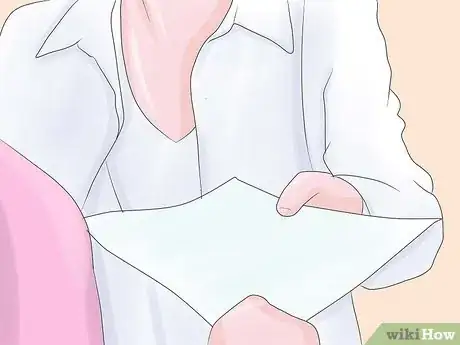
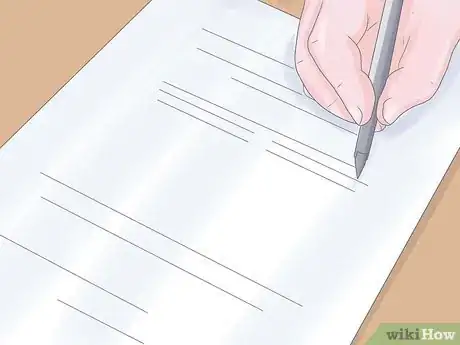




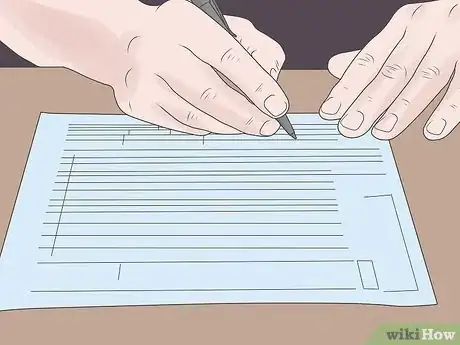
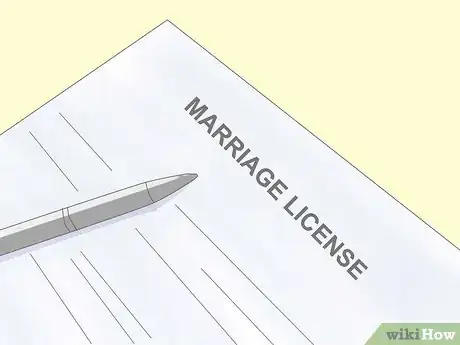
-Step-1.webp)
